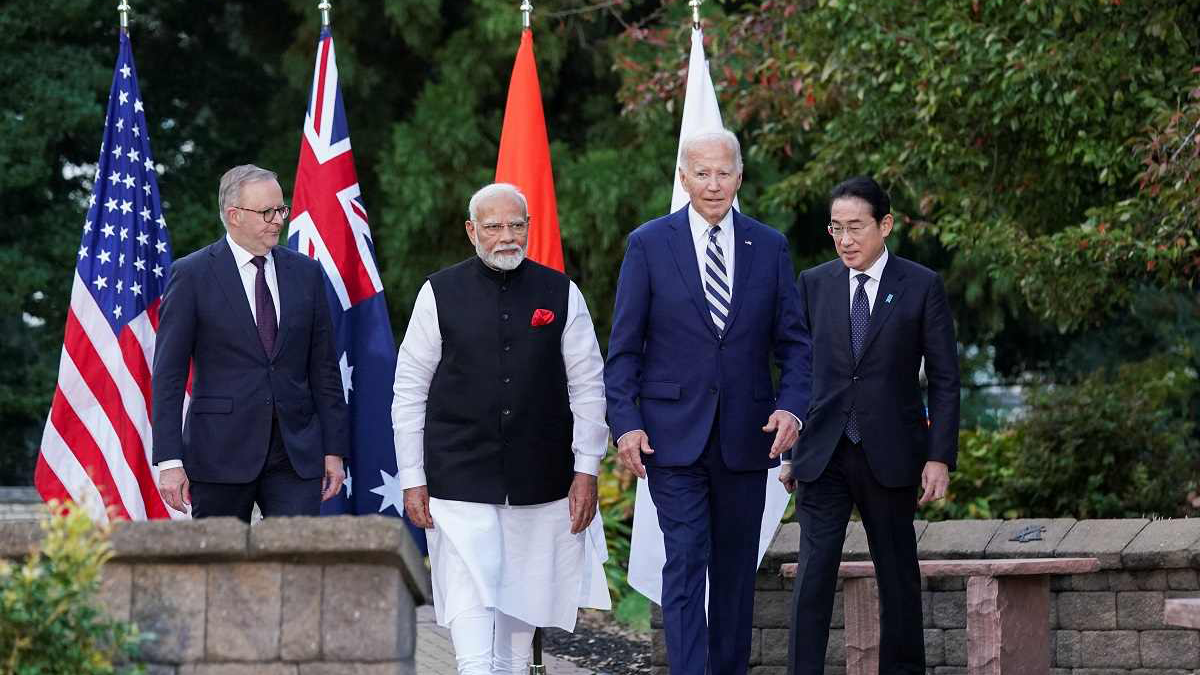The head of the Indian government and the leader of one of the largest world powers, N. Modi, has yet again prevailed in the foreign policy field, this time holding the latest successful talks with US President Joe Biden and taking part in the meeting of the Indo-Pacific ‘quartet’ on security issues, as well as the UN ‘Summit of the Future’.

The leaders of the United States and India exchanged views on global and regional issues
Attention was also paid to the further development of cultural cooperation. In this regard, India highly appreciated the US gesture to return to India about 300 objects of antiquity and art that were stolen or illegally exported from the country. By the way, it should be noted that since 2016, the US has already returned about 600 cultural artefacts to India and, in general, issues of cultural property restitution have become an important aspect of bilateral relations and are highly appreciated in Indian scientific and public circles.
When discussing issues of foreign policy, the Middle East and Ukraine, of course, were mentioned. N. Modi shared the results of his recent trip to Kiev and persistently called for the cessation of hostilities there and the beginning of peace talks between Ukraine and Russia. It should be noted that, unlike the US president, the Indian Prime Minister refrained from criticising Russia and emphasised the need for a political solution to the Ukrainian problem.
QUAD meeting and India’s special position
Special attention was paid to strengthening cooperation within the framework of the expanding dialogue between the leaders of the four states (USA, India, Japan and Australia) on security issues in the Indo-Pacific region. The 6th summit of this dialogue platform was held there in Delaware on September 21 and, in the statement adopted at the end of the meeting, the participants of the meeting joined in support of achieving a sustainable and just peace in Ukraine in accordance with international law, the goals and principles of the UN, including, above all, respect for the sovereignty and territorial integrity of this state. At the same time, it is significant that the statement does not mention Russia and, apparently, it was not without the participation of the Indian leader. At the same time, the leaders of the quartet noted the negative consequences of the situation in Ukraine for global food and energy security, as well as stressing the unacceptability of the threat of the use of nuclear weapons.
At the same time, the summit participants condemned the development of the DPRK’s nuclear missile programme and spoke out against the proliferation of nuclear and missile technologies in the region, expressing concern about the expansion of North Korea’s military and technical cooperation with other countries (although not mentioned, Russia and China are meant). When working in this format, India has to take into account the anti-Chinese and anti-Russian sentiments of the rest of its participants and when discussing problems related to Russia and China, New Delhi continues to take a balanced and cautious position, declaring its intention to further develop strategic partnership relations with Moscow and make efforts to align ties with Beijing, including the settlement of border problems between the countries. It should also be noted that other participants in the quadrilateral dialogue – no matter how much they would like to – still fail to drive wedges into India’s relations with Russia and China. At the same time, it is obvious that cooperation within the framework of the quartet is increasingly expanding, covering new areas of interaction, and the anti-Chinese and anti-Russian aspects are invisibly present in the activities of its three participants in this format. Indian diplomacy has a difficult time on this dialogue platform, but it still manages to adhere to its own national interests, to balance, and attempts by others to turn India off this path have not been crowned with success so far. In this regard, a serious test for India will be the next quartet summit in Delhi in 2025, to which N. Modi has agreed.
Underlining the search for ways to reach peace
On the side-lines of the summit, Modi held a number of bilateral meetings, including with the head of Palestine, M. Abbas, Prime Minister N. Pashinyan and the presidents of other states, among which the third meeting with the leader of Ukraine, V. Zelensky, is particularly noted. The head of the Indian government has repeatedly stressed the need to end the war in Ukraine and find ways to achieve peace.
The Indian Prime Minister ended his stay overseas with a speech addressed to the large diaspora living in the US and an address to the participants of the ‘Summit of the Future’ in New York on the eve of the 79th session of the UN General Assembly. In his speech, the Indian Prime Minister stressed that the success of mankind is not on the fields of war, but depends on collective efforts and power, reform of global institutions, primarily the UN Security Council.
Such was the very rich programme of Narendra Modi’s stay in the US, which confirmed India’s high authority on the world stage and the active role of the head of its government, who enjoys well-deserved influence and weight among world leaders.
Anvar Azimov, Ambassador Extraordinary and Plenipotentiary, Senior Scientific Researcher at the Moscow State University of Foreign Affairs (MGIMO), exclusively for the online magazine «New Eastern Outlook»
